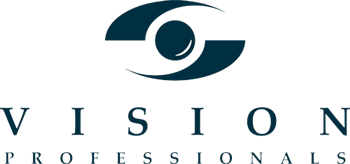LASIK & Refractive Surgery Co-Management
LASIK, which stands for Laser-Assisted In Situ Keratomileusis, offers clear vision for people with refractive errors (such as myopia, hyperopia, and astigmatism) who want clear vision with little to no reliance on glasses or contact lenses.
What is LASIK?
LASIK, also known as laser eye surgery or laser vision correction, is a procedure conducted by skilled ophthalmologists (eye surgeons). It involves reshaping the cornea using lasers or microkeratomes to enhance visual acuity (how clearly you can see).
It can be compared to photorefractive keratectomy (PRK) and stands at the forefront of refractive error correction, offering advancements over radial keratotomy (an outdated refractive surgery method).
Over 11 million and 28 million procedures have been performed in the US and worldwide, respectively. This painless procedure results in minimal post-operative discomfort, with some patients achieving 20/20 vision within 24 hours.
What is Wavefront LASIK?
Wavefront LASIK is a high-tech way to fix vision problems. It creates a detailed map of your eyes to correct not just the usual issues but also small imperfections that affect things like night vision. This personalized approach can lead to sharper and clearer vision, especially in tricky lighting conditions. It's like giving your eyes a customized upgrade for better sight. Keep in mind that whether you're a good fit for wavefront LASIK depends on your specific needs, so a pre-operative consultation with one of our eye doctors is essential.
Can I Get LASIK? All About Ideal Candidates
People with refractive errors such as myopia, hyperopia and astigmatism can benefit from LASIK depending on their unique case.
Ideal LASIK candidates should also tick these boxes:
- Over 18 years of age
- Have healthy eyes
- Enough corneal thickness
- No corneal issues
- No chronic dry eye
A comprehensive eye exam at Vision Professionals is necessary to evaluate whether you’re an ideal candidate for laser eye surgery or not.
LASIK Co-Management & What To Expect During The Procedure
Our LASIK exams and consultations allow us to determine if you're a suitable candidate for this advanced procedure. We'll assess your eye health and vision to provide you with the best information and recommendations so you can make an informed decision. We’ll also refer you to a skilled ophthalmologist with a great track record.
The surgery itself takes around 15 minutes for both eyes, with additional allowances for your presence at the surgical site. It starts with the creation of a thin, hinged corneal flap using a laser or microkeratome. This flap is folded back, allowing the ophthalmologist to reshape your eye in under a minute. The flap is then repositioned and the procedure is seamlessly repeated for the second eye. You should be out of the surgery center in about an hour.
Remember that LASIK is elective and requires you to weigh personal needs, potential gains, and risks. While LASIK doesn't guarantee perfect vision, it often reduces dependence on glasses and empowers a life less reliant on eyewear. If your cornea is too thin for LASIK or PRK, our eye doctors may recommend a phakic intraocular lens as an alternative path.
Navigating Life After LASIK surgery
After LASIK, medicated eye drops, artificial tears and protective shields will be prescribed to help with healing. Medicated eye drops prevent infection, while artificial tears ensure comfort.
Although you can open your eyes and walk without glasses, driving home isn't advised on the day of your laser eye surgery. You’ll also be told to rest your eyes and use soft lighting in your surroundings. By the next day, you'll resume normal activities, driving included.
Patience is key, so your vision may take weeks or months to fully stabilize. If you have blurry vision after your surgery, consult your LASIK surgeon. They may offer enhancements or temporary eyewear.
LASIK Aftercare and Post-Operative Follow Ups
Follow up appointments after LASIK ensure that your eyes are healing like they’re supposed to and your vision is clear. We’ll liaise with your eye surgeon to monitor your progress and ensure the success of your procedure. These post-op check ups allow us to screen you for glaucoma and post-LASIK complications.
We’ll also give you tips on taking care of your eyes, such as protecting your eyes when outdoors with UV-blocking sunglasses and wearing eyewear for night driving or specific tasks.
If you’re considering LASIK, request a consultation with us so we can evaluate if this procedure is suitable for you.
